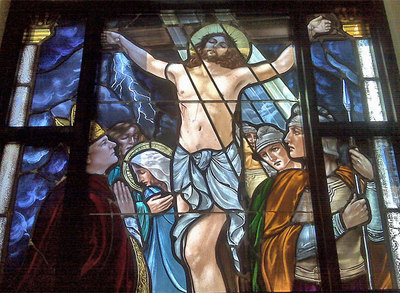Ever wonder what it’s like to work in prison ministry?
Here are some answers, from a few of those involved — and a growing number are deacons:
Father Ernie Gauthier has kept going back to the jails, prisons and halfway houses to visit inmates, celebrate a Mass or a communion service, and bring God to the residents for more than 25 years.
The priest, a licensed clinical social worker who retired from parish ministry in 2002, has seen changes in the jails and the criminal justice system over the decades. Sheriffs ran the jails in the days before a charter form of administration took over. Buildings and facility campuses have opened and closed. One thing that has remained the same, however, is that it’s depressing.
“It’s not the inmates that are depressing,” Father Ernie said, “it’s the criminal justice system.”
In a Catholic Key story dated April 18, 2003, Father Ernie said the behaviors that often put people behind bars are often only a symptom of deeper problems. He described it as the tip of an iceberg. “How much is above the surface? Only about 10 percent. Beneath all this is a co-occurring disorder or distraction that must be treated or the problem above the surface is not going away. Unfortunately, society is more interested in punishing behavior than curing it.”
He is the founder of “Co-Occurring Distractions,” a non-profit agency in Lee’s Summit that works with addicts and professionals assigned to them to understand the underlying causes of anti-social behavior. The agency collects and has processed meat from deer during hunting season to augment food supplies in prisons, halfway houses and food pantries.
Father Ernie praised the Sisters of Mercy of Omaha whose donation of seed money helped establish the Criminal Justice AIDS Network — healthcare case management for inmates with HIV/AIDS.
A number of people regularly visit prisons, halfway houses and county jails. Father Ernie said that a group of ordained deacons and several priests hold scripture and communion services, celebrate Masses and initiate discussions on the readings including Kansas City -St. Joseph Bishop Robert Finn and retired Father Tom Wiederholt who celebrates Mass and Sunday services.
Deacon Mike McLean of St. Elizabeth Parish, who ministers to inmates at the Regional Correctional Center downtown, said a particular kind of person gets into prison ministry. “You have to be strong enough to avoid the con-games. Some of the guys are really good at cons. It’s important to keep showing that you care, you love them and want to help them, but you can not and will not do certain things for them.”
Deacons Don McCandless, Darwin Dupree and Mike McLean visit the Regional Correctional Center next to the Jackson County Jail on the first and third Sundays of every month.
Deacon McCandless, now retired, had gotten involved in prison ministry in Canada long before he moved to Kansas City. After his move to this diocese and his ordination to the permanent diaconate in 1978, Deacons McCandless and Ross Beaudoin were assigned to the now-closed Municipal Correctional Institution, also known as Leeds Farm.
“We visited there until the program was discontinued,” Deacon McCandless said. “We started visiting again when it restarted. There were six of us: deacons Darwin Dupree and Mike McLean; Deacon Ken Albers and his wife Cathy; a layman, Alex Pope, and me. We visited MCI regularly for another year or so. Then Governor (John) Ashcroft created a Citizens Advisory Board. We visited each institution and listened to inmate’s complaints. If there were justifiable complaints, we went to the administration and tried to rectify the problem. There was an inmate who was diabetic and he was bothered by the blood stained lab when he had blood work done. He didn’t feel it was a healthy place for him to go. I went to see for myself, and sure enough, there was dried blood on the table and on some of the lab equipment.”
Deacon McCandless and the others continued to visit the correctional facility until other commitments became more demanding.

